Banana Flower: Uses, Benefits, Side Effects By Dr. Rajeev Singh
By Dr Rajeev Singh +2 more

Get,

to manage your symptom
Get your,


4 Cr+ families
benefitted

OTP sent to 9988776655



You’ve successfully subscribed to receive
doctor-approved tips on
Whatsapp

Get ready to feel your best.

Hi There,
Download the PharmEasy App now!!


Register to Avail the Offer
Send OTPBy continuing, you agree with our Privacy Policy and Terms and Conditions

Hi There,
Sign up on PharmEasy now!!
Trusted by 4 crore+ families

OTP sent to 9988776655



You have unlocked 25% off on medicines




Code: NU25
By Dr Rajeev Singh +2 more
Table of Contents
One of the most consumed fruits in the world is bananas and bananas (Musa paradisiaca) are grown in almost every country, especially in the subtropical and tropical regions. It is produced mostly in India, followed by China, which is the second largest producer of bananas. The banana plant is the largest flowering herbaceous plant and a lot of banana flowers are produced in a single collection of bananas1,2.
These flowers are usually considered a waste material while producing bananas, but it has high nutritional value. The flowers of bananas are huge, red, pointed flowers, some of the flowers are yellow or pink in colour. Precisely, the color of the flower can range from orange to purple and it contains pale yellow or white florets inside it. Banana flowers have many bioactive compounds and are nutty, crunchy, and starchy to taste. It might also have the potential to help with certain health conditions like diabetes, diarrhea, and cancer1. Let us discuss the importance and health benefits of the banana flower in detail.
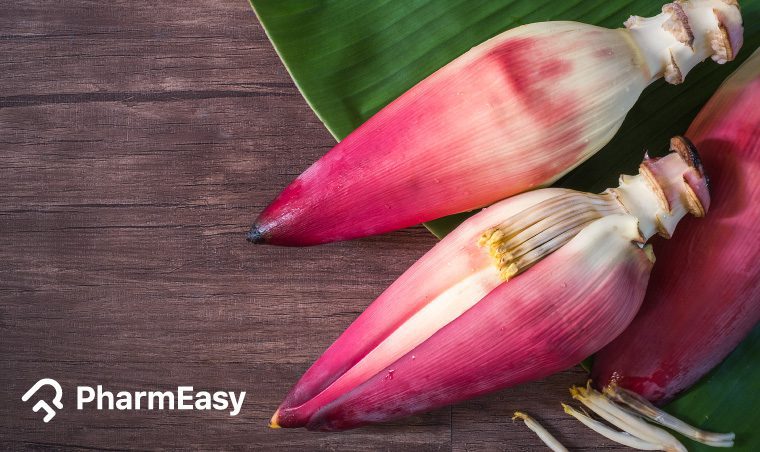
A study conducted by Ramu et al., found in their study that the banana flower contains the following nutrients:
Sheng et al., and Elaveniya et al., found in their study that the following minerals are present in the banana flower:
Other research showed that the following bioactive compounds like alkaloids, saponins, superoxide dismutase, cardiac glycosides, steroids, and phenolic compounds might be present in the banana flower1.
From my experience, banana flowers’ approximate composition is quite astounding since they include a wide range of minerals, such as phosphorus, calcium, potassium, and magnesium. Potassium maintains muscles, and nerves, and regulates heartbeat as a vital component of bodily fluids and cells. Magnesium is a natural anti-depressant that may help lessen sadness and mood swings. It may play a protective role for the heart and may be necessary for healthy bones6.
Dr. Anuja Bodhare, B.A.M.S, M.D (Ayu)
The banana flower might possess the following properties:
As the banana flower is a rich source of various minerals and bioactive compounds. Therefore, it might be helpful for various diseases and disorders1. Some of the possible banana flower health benefits are as follows:
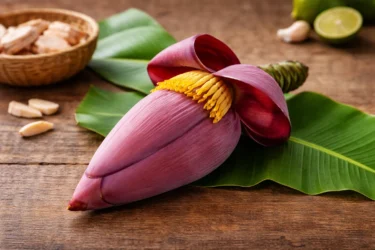
China et al. have reported that the flowers of bananas might have antioxidant properties and may help in reducing oxidative stress. It might neutralise the free radicals by protecting the cells and tissues of the body from damage. This possible antioxidant activity of the banana flower might render its potential against various conditions caused due to oxidative stress like diabetes and cancer. However, more research is required to prove its possible effects2.

Researchers found that the banana flower extract might have a potential activity that inhibits the proliferation of cancer cells. It might also be a safer alternative for the further development of an anticancer drug. However, further animal and human studies are required to ascertain such claims. Moreover, a serious condition like cancer must and should be diagnosed and properly treated by a qualified doctor. Therefore, ensure that you consult a doctor2.
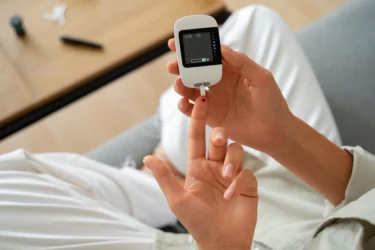
In a study2 conducted by Pari and Uma-Maheshwari, it was seen that the banana flower extract might have the potential to decrease blood glucose levels. It may also help in reducing the level of glycated haemoglobin (glucose attached haemoglobin), which is used as a measure of glucose control over a few months. Therefore, the banana flower might be helpful for diabetes, and more studies are required to claim these properties. Moreover, a serious condition like diabetes must be properly diagnosed and treated by a doctor; kindly consult a doctor and do not self-medicate.
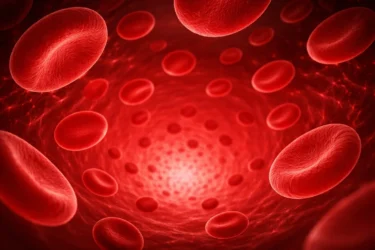
Haemoglobin is an iron-containing protein that is present in the blood and helps in the transportation of oxygen to cells. It was seen in several studies that the banana flower is a rich source of iron and fiber which might help raise the haemoglobin level in the blood. Further studies are required to confirm the rise in haemoglobin levels due to the banana flower1. In case of less haemoglobin content, consult your doctor and don’t self-medicate.
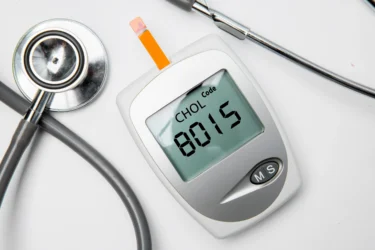
Liyanage et al. found that the banana flower might have a potential hypocholestrolaemic effect (blood cholesterol-lowering). This effect might be exhibited by it, due to the presence of unsaturated fatty acids, saponins, flavonoids, vitamin E and dietary fibre. These substances might also help in protecting the liver from damage and safeguarding it. However, more studies are needed to prove these effects1.
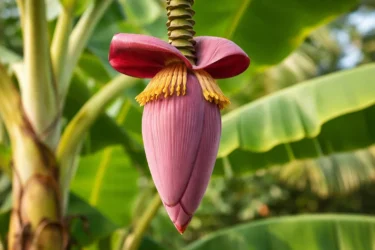
Banana flowers might be potentially used for the following:
More studies are necessary to explore the potentialities of the banana flower.
Though there are studies that show the potential uses of the banana flower in various conditions, these are insufficient and there is a need for further studies to establish the true extent of benefits of the banana flower on human health.
Polyphenols and flavonoids, that are strong antioxidants, are abundant in banana stem and flowers. Melanin production may be reduced by using the banana flower extract. Based on these findings, I suggest banana stems and flowers may both be used as effective depigmenting agents for gums4.
Dr. Siddharth Gupta, B.A.M.S, M.D (Ayu)
The banana flower is used for making curries in the Southern part of India and is eaten with rice and wheat bread3. Apart from this, it is also used for the development of various products due to its high nutrient content1. It is used for the preparation of the following products:
You must consult a qualified doctor before taking the banana flower or many other herbal supplements. Do not discontinue or replace an ongoing treatment of modern medicine with an ayurvedic/herbal preparation without consulting a qualified doctor.
I recently read an article that says banana flower bracts are a rich source of several nutrients and are known for their many therapeutic benefits. Apart from their medicinal benefits, they may be utilised as colouring agents. Banana blossoms are typically utilised in South India to prepare curries, chutneys, and even desserts5.
Dr. Rajeev Singh, BAMS
Also Read: Chicory (Kasani): Uses, Benefits, Side Effects and More By Dr. Smita Barode
There are no specific side effects of banana flowers reported yet. More research is required to render it completely safe for human use. Therefore, if you notice any abnormality in eating banana flowers, you should immediately consult a doctor.
I recently read an article which described a study conducted on rats that says rats who were fed the banana blossom diet gained less weight than those fed the cholesterol-enriched control diet, which may confirm that consumption of banana flowers may aid in weight loss6.
Dr. Smita Barode, B.A.M.S, M.S.
Also Read: Cluster Beans: Uses, Benefits, Side Effects By Dr. Siddharth Gupta
General safety precautions should be taken, and a doctor should be consulted before eating banana flowers. The effects of eating banana flowers during pregnancy and for children have not been reported yet. Therefore, you should consult a doctor before consuming banana flowers.
Also Read: Green Peas: Uses, Benefits, Side Effects and More!
Adverse reactions of banana flowers with any specific drug have not been reported. However, banana flowers may alter the action of certain drugs which has to be explored by further research. Therefore, you should consult a doctor before eating banana flowers especially if you are undergoing any treatment and are on medication.
Also Read: Red Chilli: Uses, Benefits, Side Effects By Dr. Smita Barode
Banana flowers might help in reducing diabetes, fighting against cancer, reducing oxidative stress, reduce cholesterol levels and ulcers. However, more research is required to prove these effects. Therefore, you must consult a doctor before using banana flower for the above-mentioned conditions1,2.
Yes, the banana flower is edible. It is highly nutritious and might be helpful for various health conditions1.
The banana flower can be used to make curries and be eaten with rice or wheat bread. It is used in the production of dried slices, flour, RTC (ready-to-cook) products, humus, and sisig (ginger, onion, banana flower, coconut powder, and salt)1,3.
Various nutrients like protein (19.60%), fibre (70%) and carbohydrates (53.78%) are present in the banana flower. It contains various minerals like iron, sodium, potassium, phosphorous, zinc etc. and several bioactive compounds like saponins, tannins, cardiac glycosides, etc1.
There are no reports regarding the positive effects of banana flowers on skin. Therefore, there is a need for more studies on this subject.
Yes, the banana flower may be eaten by diabetic patients. It might reduce blood sugar levels in them and it is advised to consult a doctor before consuming banana flowers2.
Disclaimer: The information provided here is for educational/awareness purposes only and is not intended to be a substitute for medical treatment by a healthcare professional and should not be relied upon to diagnose or treat any medical condition. The reader should consult a registered medical practitioner to determine the appropriateness of the information and before consuming any medication. PharmEasy does not provide any guarantee or warranty (express or implied) regarding the accuracy, adequacy, completeness, legality, reliability or usefulness of the information; and disclaims any liability arising thereof.
Links and product recommendations in the information provided here are advertisements of third-party products available on the website. PharmEasy does not make any representation on the accuracy or suitability of such products/services. Advertisements do not influence the editorial decisions or content. The information in this blog is subject to change without notice. The authors and administrators reserve the right to modify, add, or remove content without notification. It is your responsibility to review this disclaimer regularly for any changes.
Comments

Leave your comment...
You may also like
Comments